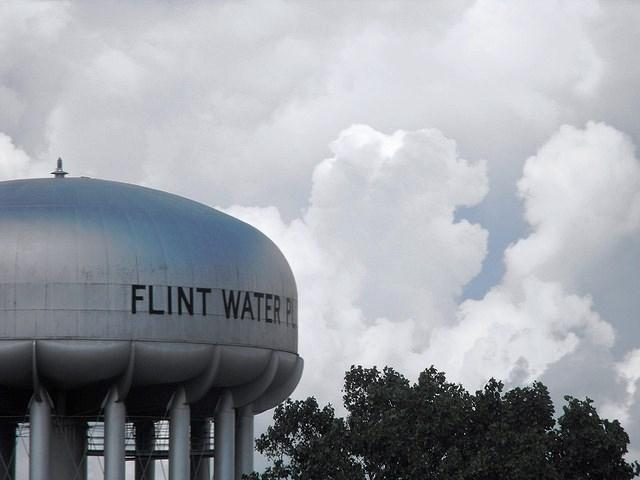Flint is slowly making progress on replacing lead service lines, and the city is coating the pipes with anti-corrosives to prevent more lead from leaching into the water.
While the Flint crisis is far from over, residents there are getting closer to having clean tap water again, but Flint isn’t the only Michigan city with lead service lines tied into its water infrastructure. And state officials say that replacing lead pipes across the state could go a long way in preventing another public health catastrophe.

Flint water tower. Image: Ben Gordon, Flickr.
On Friday, Governor Rick Snyder endorsed a plan that would toughen lead test rules and require all lead service lines in the state to be replaced within the next 10 years, but exactly how that would happen and what it would cost are still unknown.
Current State speaks with Garret Ellison, an environmental and Great Lakes reporter for MLive.
This segment is supported by Michigan State University’s Knight Center for Environmental Journalism. More news about the Great Lakes environment can be found at GreatLakesEcho.org and on Current State every Tuesday as part of our partnership.
This story first appeared on WKAR’s Current State and is republished here with permission.